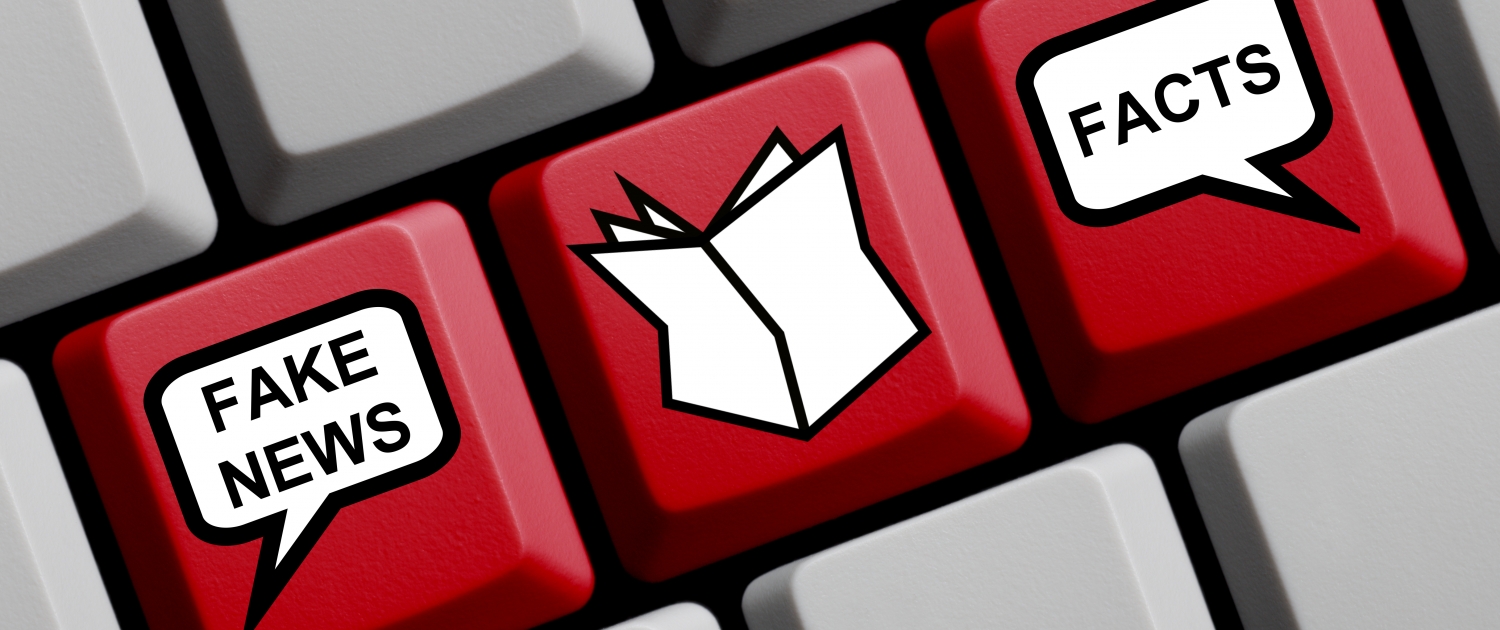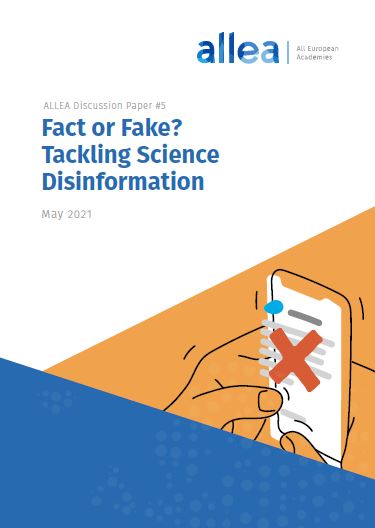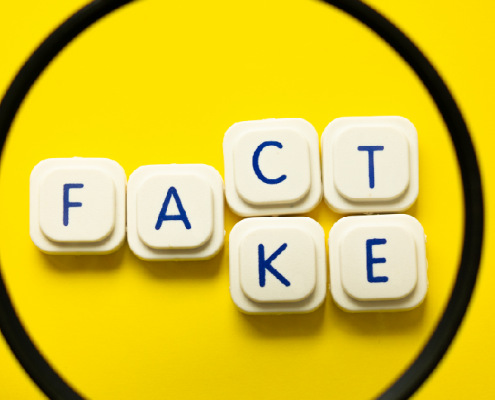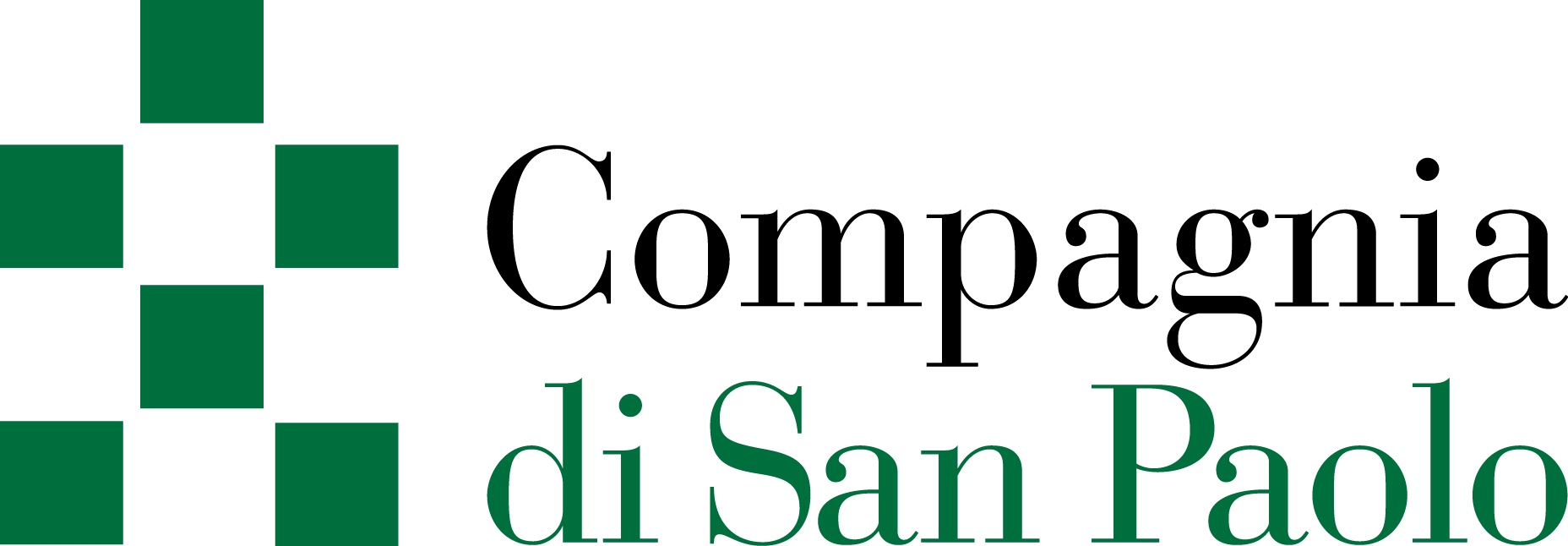FACT OR FAKE? TACKLING SCIENCE DISINFORMATION
The spreading of false information has become a serious challenge to evidence-based decision-making and science communication. This problem has worsened with the use of new and unprecedented digital communication technologies including the use of ‘bots’ and ‘deep-fakes’. It has become exceptionally difficult to distinguish between what is fact and what is fake, even for the well-trained eye, especially when the false information is guised in scientific vocabulary.
When efforts to deceive and mislead employ digital technologies, the false information can reach many people and can do so rapidly and with devastating consequences, especially when it concerns human health. Therefore, the dangers posed by false information need to be urgently addressed.
Disinformation is the intentional fabrication of claims or distortion of facts and the propagation of such falsehoods. Misinformation is the unintentional or accidental sharing of false information. Sometimes false information is presented in ways as to make it look scientific (i.e. pseudoscience), or it is directly anti-scientific spreading conspiracy theories aimed to undermine trust in the scientific process.
COVID-19, misinformation and disinformation
The COVID-19 pandemic and the accompanying ‘infodemic’ described by the WHO have placed science disinformation at the centre of global debates. Likewise, the spreading of misleading information from organised vaccine opponents has caused a drop in vaccination compliance, putting children and societies at serious health risk for several diseases. Climate change disinformation is routinely used in efforts to undermine scientific reports and to increase polarisation within societies, thereby hindering effective policy decisions.
These activities erode trust in science and expertise, test our democracies, and challenge the ability of individuals and governments to make evidence-based decisions based on sound reasoning. The European Academies are deeply committed to ensuring high ethical standards in science and research, as well as in communication and dissemination of science. They are equally committed to upholding values that emerged during the Age of Enlightenment, which are based on the principle that through reason and evidence, people can make sense of the world and make progress.
Against this background, ALLEA and its Member Academies convened an interdisciplinary and cross-sectoral group to target this wide-reaching problem through multiple disciplinary perspectives and methods.
ALLEA Discussion Paper
The ALLEA Discussion Paper examines the potential of technical and policy measures to tackle science disinformation and calls for improved European exchange and coordination in this field.
While disinformation strategies are intoxicating public discourses in many fields, science disinformation is particularly dangerous to democratic governance and society at large. As highlighted by the ongoing pandemic, an undermining of trust in science poses a fundamental threat to political and individual decisions based on evidence and scientific knowledge.
Over the past years, extensive research and a variety of strategies have been developed and applied to tackle science disinformation. ALLEA’s paper reviews this work, focusing on the roots and consequences of this multi-dimensional phenomenon, as well as practical solutions for policy, technology and communication.
Czech Translation
The discussion paper has been translated by the Czech Academy of Sciences to Czech. You can download the Czech translation here.
Members of the Scientific Committee
- Dan Larhammar (Chair) – Royal Swedish Academy of Sciences
- Maria Baghramian – PERITIA; University College Dublin
- Piero Bianucci – Academy of Sciences of Turin
- Garvin Brod – Die Junge Akademie
- Dalibor Dobiáš – Czech Academy of Sciences
- Erol Gelenbe – Bilim Akademisi
- Risto Kunelius – The Council of Finnish Academies
- Stefano Leonardi – National Academy of the Lincei
- Stephan Lewandowsky – Max-Planck-Institute; University of Bristol
- Mariëtte Oosterwegel – Royal Netherlands Academy of Arts and Sciences
- Alison Powell – London School of Economics and Political Science
- Jane Suiter – Royal Irish Academy
ALLEA Contact
Daniel Kaiser
Scientific Policy Officer
kaiser@allea.org
Related News
Background and sponsorship
Supported by Compagnia di San Paolo, the project builds on and connects with past, on-going and upcoming ALLEA activities relevant to the topic of science disinformation / misinformation, including the ALLEA Working Group Truth, Trust and Expertise, science communication activities carried out in cooperation with national and European associations, the ALLEA-Re-Imagine Europa work on Democracy in a Digital Society.






